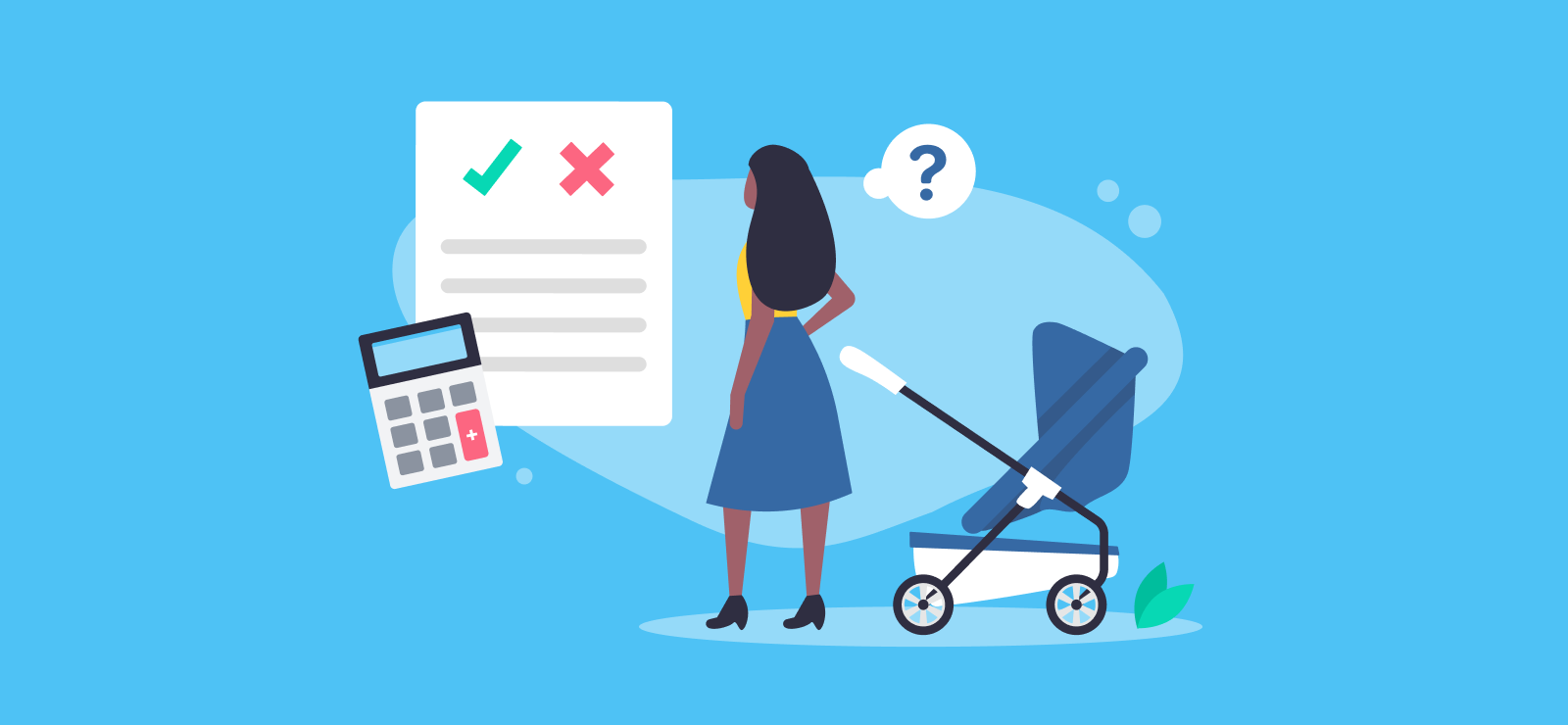

Leasing a Car Personally versus Through Your Limited Company
Should you lease a car in your own name or do it through your company? This is one of the questions our clients ask the most and to be honest, there is rarely a straightforward answer.
It’s important to remember that there are all sorts of considerations that come into play and the rules are different depending upon whether you have a limited company, are a sole trader, want to lease a car, or choose to go for a van.
In this post, we want to demystify the subject and give you the lowdown on the pros and cons of leasing your car through your business.
Should I lease a car for my business?
The first place to start is with an issue that has nothing to do with taxation, and that is your business strategy. You see, the important thing to bear in mind is that there is no point in choosing to lease (or not lease) a new car if it makes no sense for your business, even if it is tax efficient.
For example, if you are an architect and you have been getting by with a rickety old car since the day dot, then you may like the fact that your repairs are all claimable against tax and that you pay a lower amount in company car tax due to the age of the vehicle.
But, from a business point of view, turning up to a site as a successful professional in a car which has seen better days (or worse, continually turning up late due to breakdowns) is likely to give clients a bad impression.
Alternatively, leasing a car may seem like a great idea but if you do the vast majority of your work from home then it might be a cost you don’t need to incur.
So, the first point to make is that leasing a new vehicle has to be a business decision first and foremost. Choosing how you structure the finance comes second.
What types of car finance are available for businesses?
Before we get into the tax side of things, we thought it would be useful to go over the different types of car finance which are available. There are a lot of different ways to finance a new vehicle, but they generally come down to Hire Purchase (HP), a loan, renting, or leasing (also known as PCP).
Using a loan to buy a car
If you use a loan from your bank or finance company, the car is yours from day one. You pay interest on the loan and part of the capital each month, so you’re paying back both the amount that you borrow as well as the interest that the lender charges. At the end of the term, you still have the vehicle with nothing to pay.
How does Hire Purchase (HP) work for cars?
HP is slightly different. Legally you are actually renting the vehicle for the whole term, and only get to own it once you have made all of the payments. But again, at the end of the agreement, you have an asset you own.
If you do this through your business, you do actually get the tax relief for the purchase of the car in the financial period in which you start the HP, not the end.
Leasing a car
With a lease, you (or your company) never actually own the vehicle. You are simply paying for the right to use it for a set period, usually 3-5 years.
The lease can include maintenance, repairs, and tax, or you can choose to be responsible for these, but generally, you won’t have an option to buy in a business lease.
What about PCP?
A PCP (Personal Contract Plan) is slightly different in that it works in a very similar way to a lease, but also includes a large final payment (often called a balloon payment) at the end of the agreement. You can choose to pay this and own the car, or alternatively just hand the vehicle back to the finance company.
The taxation of these methods is often very different, so if you are thinking about buying a new vehicle, speak to us first about how to structure the finance deal.
The benefits of leasing a vehicle through your limited company
So, what are the benefits of leasing a vehicle through your limited company? Well, the first benefit is that the agreement is with the company and not you. This means that if things go wrong and the business folds, then you have no personal liability to the lender.
Secondly, the lease payments you make under an operating lease are fully tax-deductible, and it’s also a much simpler process. Your company takes care of all the admin and payments, and you simply get a brand-new car to drive.
Your company can claim back the VAT on the lease payments according to the vehicle’s usage:
- 50% if there is even a tiny bit of private usage (which is most likely to be the case)
- 100% if you are a driving instructor or taxi driver
The cost is often lower than doing the same thing under a personal agreement due to the VAT and tax breaks that are available.
If you need to lease several cars, then you’ll often find that companies will offer group discounts that are simply not available to the general public. In that respect leasing a car through your company can often make sense. If you fall in love with the car then there may be an option to buy at the end of the deal, but this isn’t always included.
In summary, the benefits of leasing a car through your company:
- Lease payments are chargeable against Corporation Tax (so you can claim tax relief on the expense)
- VAT is reclaimable
- Repairs and maintenance are also claimable
- You might be able to get cheaper deals than with a personal agreement
The benefits of leasing personally
The typical personal lease agreements offered by dealerships today are PCP type deals. These may have fancy names thought up by clever marketing departments, but they still act very much like a lease agreement.
At the end of the agreement, you can pay a large final payment (usually half the original value of the car) and take possession, or you can let it go back to the finance company.
The good thing about this is that you get to drive a brand-new car for payments that are much lower than a corresponding HP or loan. If you want to, you can return the car every 3 years or so and have a brand new one in its place.
If you go for a personal lease, then the car has nothing to do with your business. This means there is no company car tax payable because it’s not a Benefit in Kind (BiK) (in other words, you own it, not the company). We explain BiKs in more detail below.
Should you leave, sell, or close down the company, then the car stays with you. It’s worth noting that although you can claim for the business mileage from your company, this is all you can claim. Insurance, car servicing, repairs and so on, aren’t included.
In summary, the benefits of leasing personally:
- A new car every few years
- It’s not classed as a Benefit in Kind so there’s no tax for the company to pay
- You can charge your company for business miles
- You still get to use the car if you close or sell your company
What is company car tax?
We’ve mentioned company car tax and Benefits in Kind a couple of times, so we need to look at this in a little more detail.
A Benefit in Kind is a perk or other benefit which an employee or director receives alongside their usual salary. These perks increase the value of the ‘package’ that you receive, so you’ll normally pay tax on its equivalent value.
So, although leasing a car through your company seems like a no-brainer at this point, you will be taxed on the benefit the company is giving you so this may make it a lot less attractive.
This might not be very practical in some cases because it means leaving the car at the office or depot overnight, and then driving home in your personal car – so for the vast majority of company car users there is some element of personal use, and so company car tax is payable.
This is worked out based on the environmental impact of the vehicle and its original cost, so the most expensive and polluting cars will attract the most tax.
Fuel mileage rates if you charge your company
If you choose to lease a car personally then you can charge the company for any mileage you do on business. The rates vary depending upon the amount of mileage you do but:
- For cars, the first 10,000 miles are paid at a tax-free rate of up to 45p per mile
- You can also charge your business for mileage you do on your personal motorcycle (24p)…
- …Or even your own bicycle (20p)!
The rates drop once you do more than 10,000 miles but for many people, this is a better option than taking a leased company car.
It’s different for vans and pickups
Commercial vehicles are treated a little differently. If you use a company van or pickup for any personal journeys (this includes going to or from work) then you will have a tax charge but this is much lower than cars and easier to understand.
This single flat amount, known as the van benefit charge, is set regardless of the type of vehicle. You’ll pay your tax rate on this value so if you are a Basic Rate 20% taxpayer, then your annual charge will be 20% of the charge, which in this case is £804.
Following on with the environmental theme, zero-emissions vans have a Benefit in Kind (BiK) rate of 0%. It means that for many people, leasing a van or pickup through the business is an attractive option.
The environmental option
The government is keen to promote greener transport options and so if an electric, PHEV (plug-in hybrid electric vehicle) or low-emission vehicle makes sense for your business, then this is a great way to reduce your company car tax.
PHEVs can also attract a lower charge depending upon their performance. If you can cycle where you need to for business then you could also take advantage of a tax-free cycle to work scheme, or charge the business a mileage rate for all of the healthy business miles you pedal.
Thanks to the government’s commitments to greener energy, in many cases doing the right thing environmentally can actually save you money.
Company car tax made simple
We know that there’s a lot of information to take in there and the truth is that company vehicle taxation can be incredibly complex. The choice of whether to lease a car through your company or not isn’t simple and what might be right for one person may not be right for one of their work colleagues.
We’d always suggest that when you own your own business, it makes sense to look at the issue in the round. That means everything from the Corporation Tax your company will save by providing a car, to the extra personal tax you’ll pay as a result.
Our team of online accountants can help you work through the best options for you. Call us on 020 3355 4047, or get an instant online quote.
Want to learn more?
Subscribe to our newsletter to get accounting tips like this right to your inbox

Read more posts...

The Accountancy Partnership – Our Positive Reviews
16th February 2026We’re proud of our customers’ reviews here at The Accountancy Partnership The reviews we receive from our customers show how hard we…
Read More
Maternity Pay for Self-Employed People
15th February 2026As a self-employed person you might be eligible to get Maternity Allowance payments for up to 39 weeks. It’s different to Statutory…
Read More
National Insurance for the Self-Employed
14th February 2026If you work for your own self-employed business, then you may need to pay National Insurance on the profits that you earn….
Read MoreConfirm Transactions
The number of monthly transactions you have entered based on your turnover seem high. A transaction is one bookkeeping entry such as a sale, purchase, payment or receipt. Are you sure this is correct?
Please contact our sales team if you’re unsure
VAT Returns
It is unlikely you will need this service, unless you are voluntarily registered for VAT.
Are you sure this is correct?
Call us on 020 3355 4047 if you’re not sure.
MTD IT Quarterly Updates
Your final, end of year MTD Income Tax submission is included in your fee.
You can submit the quarterly updates yourself using Pandle, or alternative bookkeeping software (which we recommend).
However, if you would prefer us to submit these updates, there is an additional fee of £35.00 per month.
Call us on 020 3355 4047 if you’re not sure.
Bookkeeping
You will receive our bookkeeping software Pandle for free, as part of your package.
You can use this to complete your own bookkeeping, or we can provide a quote to complete your bookkeeping for you.
Please select and option below:
Call us on 020 3355 4047 if you’re not sure.

